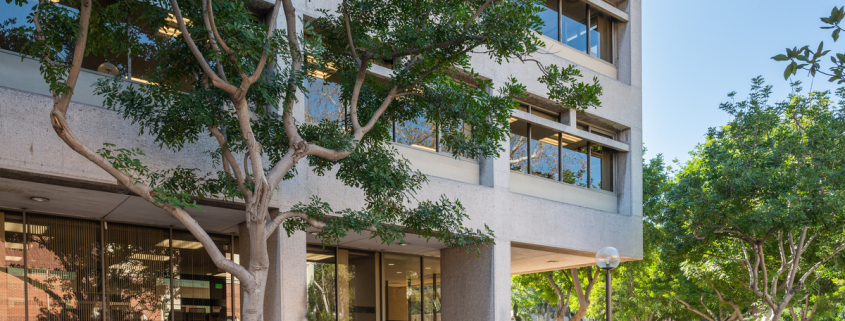Students learn renting rights with Gould School of Law

The USC Housing Law and Policy Clinic hosted the “Know Your Rights” workshop Monday afternoon, with the goal of aiding students who are new to renting a property and explaining different protections for renters on the state, county and city levels.
The workshop is a partnership between the HLPC and Undergraduate Student Government. HLPC is a new organization under the Gould School of Law in which students study issues related to housing insecurity and work with other organizations in the South Central community to support people who are at risk of eviction. USG Vice President Nivea Krishnan facilitated and spearheaded the project.
“It was the school’s responsibility to [educate students about renting] because they’re the ones that don’t guarantee housing all four years,” said Krishnan, a junior majoring in public policy and economics. “That puts the burden on them to make sure students are informed, not just about their options for housing, but how to go about renting in the first place.”
During the presentation, students working with the HLPC explained topics such as renting contracts, the procedure for rent increases and the process of creating a subleasing agreement — when a tenant transfers their leasing agreement to a new tenant.
“Subleasing was very helpful because I know a lot of people are subleasing on Facebook Marketplace or whatever,” said Nancy Shao, a sophomore majoring in biomedical engineering. “I’ve already signed my lease personally, but I did do the annoying thing where I read through all of it and then contested a part of it and had them do a written agreement that they would amend one part of it.”
Students in the HLPC discussed best practices to avoid losing a security deposit, such as taking photo and video evidence of damage before moving in, and accommodations that a tenant is entitled to request to increase accessibility — such as the ability to live with a support animal or to request housing near a parking space.
The presentation also addressed legal protections against eviction, which has become increasingly relevant with new legislation establishing “just cause” protections for the city of Los Angeles.
“Just cause” protections are a specific list of reasons that a landlord may use to evict a tenant, limiting the potential for unjust evictions. The L.A. City Council approved the protections in late January and finalized them in February. Deepika Sharma, the founding director of the HLPC and a professor at Gould, said the protections are part of a larger tenant’s protection package the Council has been working on, such as establishing situations in which a tenant gets relocation assistance.
“The way the law works in California, you could have a rent increase of 40% one day,” Sharma said. “If that’s the case … at the very least you’ll qualify for a relocation … These ‘just cause’ measures are going to apply and help, I think the last estimate was over 300,000 units in the city.”
However, other tenants’ protections are about to expire, potentially putting numerous families at risk of eviction. In late February, the L.A. County Board of Supervisors voted unanimously to end the County’s coronavirus state of emergency March 31. This will put an end to the protection that allowed tenants to cite the coronavirus pandemic as a reason to delay rent payments.
“There’s a feeling of, what are we supposed to do?” Sharma said. “You can look and research upcoming ballot proposals [and] you can use your voice in making general comments to support policies. So I think there’s a role for everybody, and the clinic is just specifically trying to harness that, in one sense in the legal community, but also share with all students their own rights and how they can be part of it as well.”

